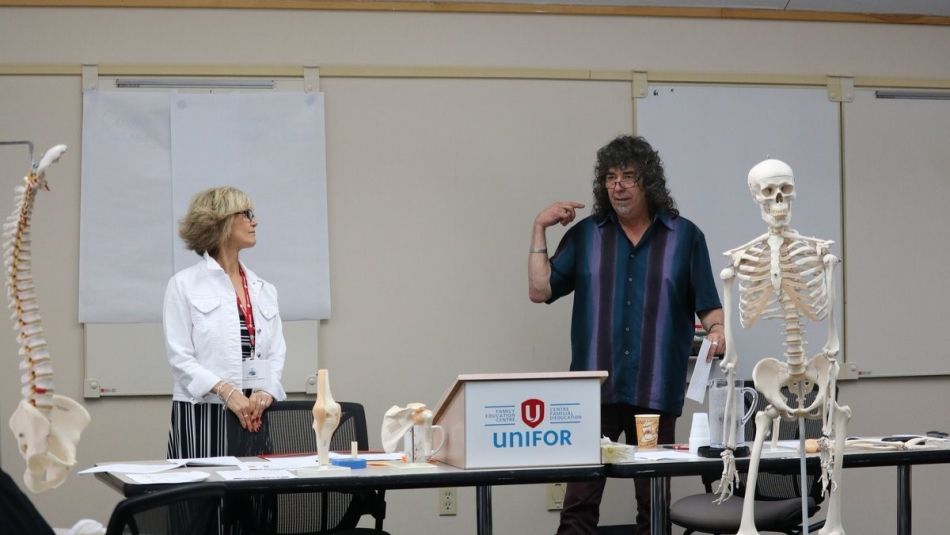Share
Unifor compensation advocates play a very important role and are dedicated to representing the interests of workers and their families who each year, suffer the consequences of work-related injuries or occupational illnesses.
Why is medical orientation such an important topic to understand as an advocate?
The term advocate ultimately means taking care of people. Unifor compensation advocates assist and empower injured workers at any point during the claims process. This workshop provided advocates with a basic understanding of health, the factors that influence it and concepts of the compensation system.
We may not be medical experts, but we do need to understand the importance of being educated on medical terms, issues and documentation. We must master “Compensationese” to communicate effectively with the Board. We must also understand “Medicalese” to be able to decipher medical documents and effectively communicate with health care professionals.
Most workers do not enjoy dealing with their compensation issues. Many do not understand the importance of the law or the fact the compensation boards will not hold a worker’s hand through the process. There are many complexities. Many are challenged by a lack of understanding, insufficient time, or a lack of clarity regarding what medical documentation to provide to the employer.
The participants in the workshop discussed the different body systems and the injuries and illnesses seen in the workplace. There were in-depth discussions on musculoskeletal disorders such as Carpal Tunnel Syndrome (CTS), Epicondylitis, Tendonitis-Tenosynovitis and Degenerative Disc Disease (DDD). DDD is one of the most common causes of low back and neck pain, and also one of the most misunderstood. DDD refers to symptoms of back or neck pain caused by wear-and-tear on a spinal disc.
Degenerative disc disease describes a condition of cumulative damage to the intervertebral discs. It arises from long-term wear and tear associated with mechanical overloading, ageing, or a combination of both. In the compensation system, DDD is not recognized as caused by work. Working aggravates or accelerates DDD. Remember – the board looks for a significant contributing factor.The participants were told that to prove compensability for DDD, medical evidence must be obtained to support the effect the work duties had on the development and premature onset of DDD.
It is now commonplace in tribunal case law that for entitlement to succeed on an aggravation basis, one must be satisfied that the worker duties or a work incident changed the course of the underlying condition. Advocates must remember the “But for” test - but for the work injury, then DDD would not have been an issue. In other words, did the worker have significant symptoms prior to the compensable injury?
The general foundation of a claim is that the injury or disease must arise out of and in the course of employment. However simple these terms may be, navigating the law of workers’ compensation can at times be complex.
Want more information? Apply for the Paid Education Course – Medical Orientation. Visit unifor.org/education to register.



